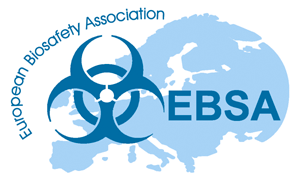About EBSA21 - Course A - The absolute essentials of biosafety
EBSA21 - Course A - The absolute essentials of biosafety
Course description
The organization of biosafety and biosecurity in an institution where biological materials are handled, be it genetically modified or pathogenic, requires a broad range of competences and abilities by individuals who advise management and personnel on the safe and secure use of biological material. As of today, interested individuals gain these competences and abilities by a step by step learning and practical application process. The present course on absolute essentials of biosafety would like to serve as a starting point in this process.
Target audience
The workshop is suitable for all newcomers to biosafety and biosecurity generally interested or to be involved in biorisk management, potentially as biosafety advisor in an institution.
Learning objectives
The course mainly focuses on general principles and main issues related to biosafety and biosecurity thus conveying to participants the competence to be able to ask the right biosafety and biosecurity questions, to know where to look for information and to develop solutions together with scientists when confronted with risk issues in work situations where biological materials are used.
Main topics
General principles of biosafety and biosecurity, including principles of
- biological and other hazards in the work area,
- occupational health issues,
- behavioral issues,
- basics of biorisk assessment also indicating biorisk issues related to latest technologies in biological research,
- good microbiological techniques,
- personal protective equipment,
- disinfection and decontamination,
- waste management,
- emergency preparedness and response.
Citation of the respective sections of CWA 16335:2011 Biosafety professional competence
The course presents the general importance and essential principles of section 7.2. and Annex C.2.1.2 on general principles of biosafety and biosecurity, 7.2.3 and C.2.1.2.1, biological and other hazards in the work area, 7.2.4. and C.2.1.2.2 occupational health, 7.2.5 and .2.1.2.3 human factors, 7.2.6 and C2.1.2.4 containment principles, 7.2.7 and C2.1.2.5 biorisk assessment and management, 7.2.11 and C.2.1.2.9 good microbiological techniques, 7.2.12 and C.2.1.2.10. personal protective equipment, 7.2.13 and C.2.1.2.11 infection control, disinfection, decontamination, and sterilization, 7.2.14 and C.2.1.2.12 biological waste management, 7.2.15 and C.2.1.2.13 emergency preparedness and response.
